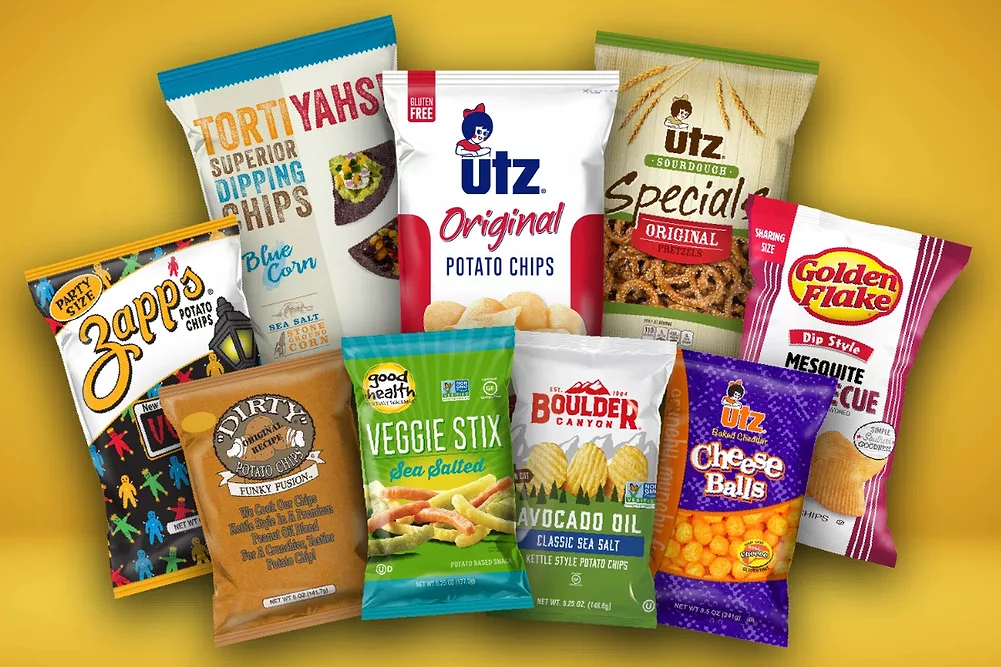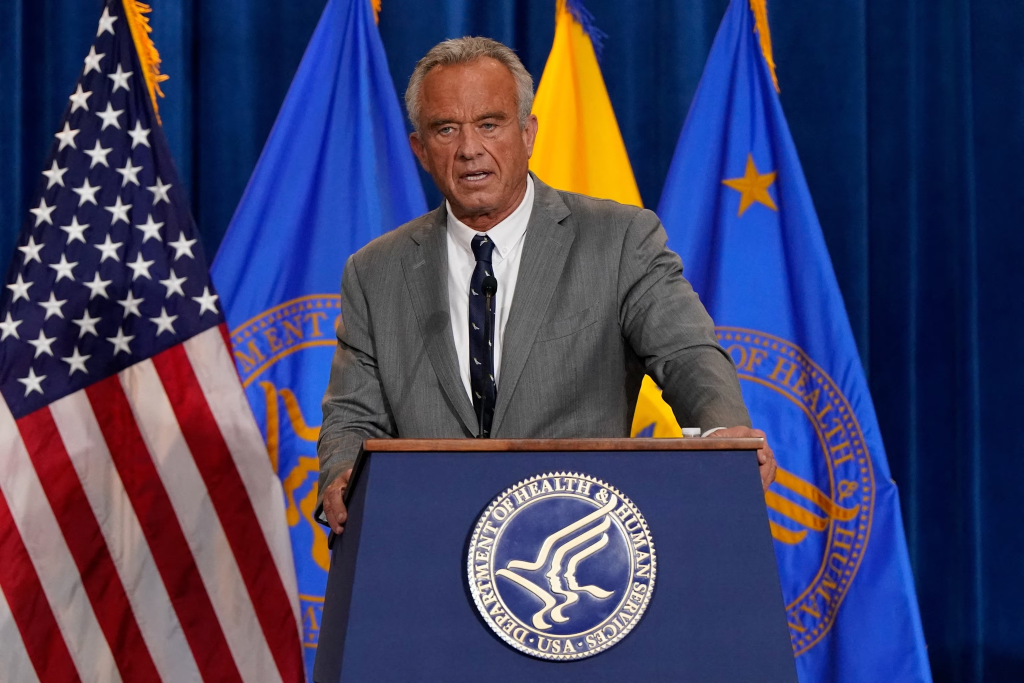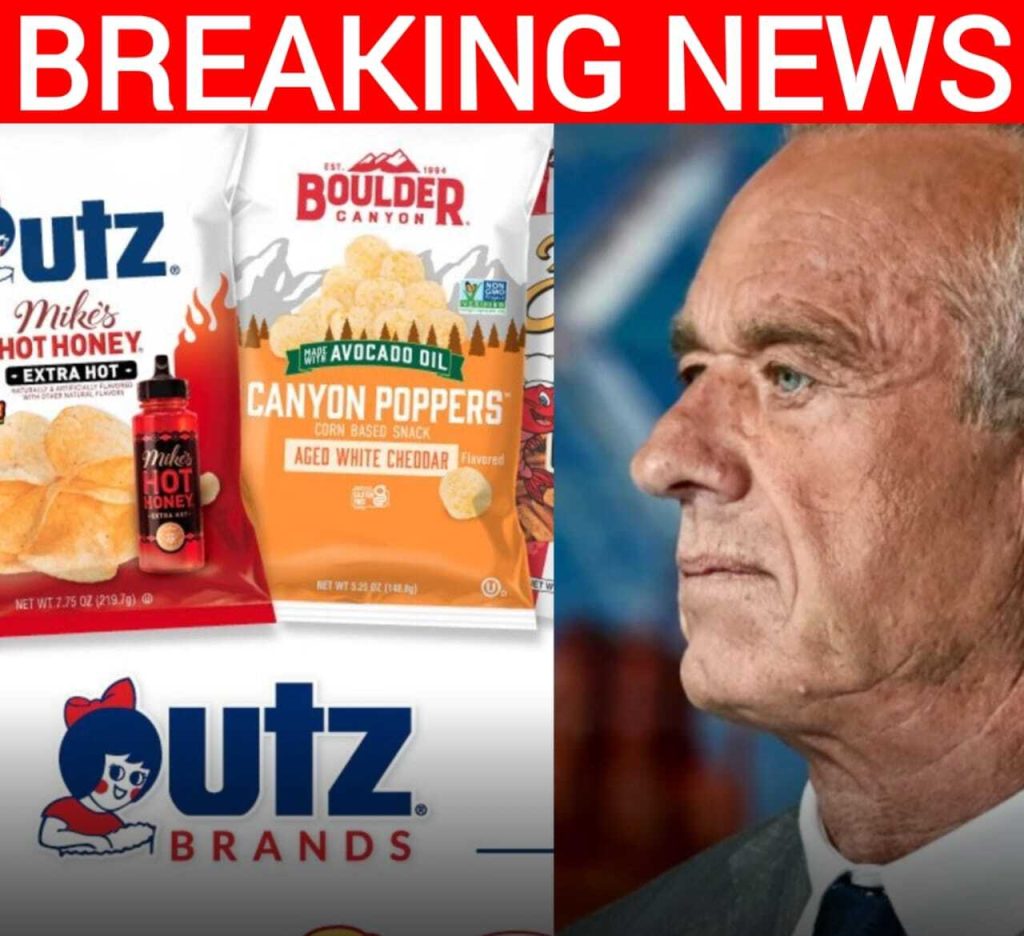Utz Brands Drops Artificial Colors in Landmark Move Backed by RFK Jr. and His “Make America Healthy Again” Push
Sometimes the biggest cultural shifts don’t happen in Congress or the White House, but in the grocery aisle. This week, Utz Brands, the company behind some of America’s most beloved snack chips, announced that they will be removing artificial colors from their foods by 2027. It might seem like a small change on the surface, but in reality it signals something much larger: a changing tide in how we view the connection between what we eat and how we live.

The announcement was welcomed by Robert F. Kennedy Jr., now serving as Secretary of Health and Human Services, who has been making headlines since March 2025 for his ambitious “Make America Healthy Again” initiative. In his statement, he didn’t just applaud Utz Brands but called on other food companies to follow their lead. “I urge other food companies to follow their lead and join us to Make America Healthy Again,” he said, framing the decision as part of a national renewal.

For decades, the presence of synthetic colors like Red 40, Yellow 5, and Blue 1 has been controversial. While the FDA has long permitted their use, citing inconclusive evidence on long-term harms, a growing body of research has raised red flags. A 2021 study published in Food Chemistry found that certain artificial dyes could trigger hyperactivity in children, especially those with sensitivities. Parents have voiced concerns for years, and the market has started listening. In fact, health-conscious purchasing in the United States has risen by 15% since 2020, reflecting a broader demand for cleaner labels and fewer additives in everyday foods.
The story also touches on something uniquely American: the power of symbolism. The promotional image that circulated alongside the announcement showed RFK Jr. against a backdrop of Mount Rushmore. While it might seem like just a striking photo choice, it carries a deeper message of national renewal and tradition. The mountain has long stood as a symbol of legacy, progress, and identity. In 2024, there was even a symbolic proposal by Nancy Pelosi to add Joe Biden’s likeness to the monument—a suggestion that sparked debate but was ultimately dismissed due to geological constraints. The backdrop here, intentionally or not, adds a kind of poetic irony: you can’t carve more faces into Mount Rushmore, but you can carve out harmful additives from America’s foods.

For Utz Brands, this decision may also prove to be smart business. As consumer demand shifts toward healthier, more transparent products, companies that resist change risk being left behind. By taking the lead, Utz is positioning itself as not just a snack company but a forward-thinking brand aligned with a national health movement. That matters to younger generations especially, who are scrutinizing food labels more than ever before.
For Kennedy, it’s a chance to reshape his public legacy. Once known mainly for his environmental law battles and controversial stances on health policy, he is now leveraging his government role to push reform in a practical, widely relatable area: the food we eat every day. Rather than focusing only on sweeping legislative reform, he’s targeting incremental but impactful changes, putting pressure on companies while also encouraging them to view healthier choices as opportunities, not restrictions.

The bigger question now is whether this ripple will become a wave. Will other companies follow, and how soon? It’s easy to imagine a domino effect, where other snack giants make similar announcements just to stay competitive. And while skeptics will point out that removing artificial colors doesn’t solve America’s broader nutrition crisis—like ultra-processed sugar consumption or rising obesity rates—it’s still a step forward. Sometimes, the journey to better health doesn’t start with a ban on soda or a new tax on junk food. Sometimes it starts with something as simple as the color of your chips.
The message is clear: America is hungry for change, and not just at the dinner table. From snack brands to government agencies, from parents to policymakers, the demand for healthier choices is starting to unite unlikely allies. If Utz’s move is any indication, this is only the beginning of a broader shift that could redefine not just what we eat, but what we expect from the people who make our food.


